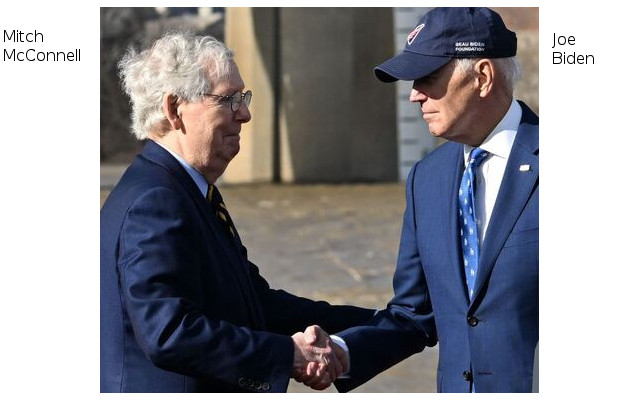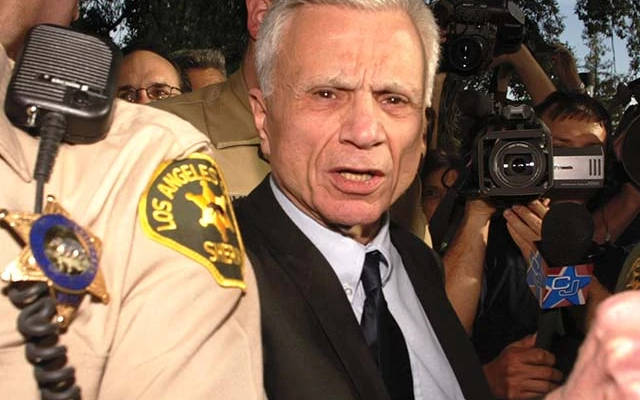
Senate Republican leader Mitch McConnell was being treated Thursday for a concussion and is expected to remain in the hospital for “a few days” after he tripped and fell at a hotel dinner the night before, his spokesman said.
The Kentucky senator, 81, was at a Wednesday evening dinner after a reception for the Senate Leadership Fund, a campaign committee aligned with him, when he tripped and fell. The events were at the Waldorf Astoria Washington DC, formerly the Trump International Hotel.
Notes:
I am not sure which hospital he is at.
From Article:
None of the senators had talked to McConnell, though several said they had reached out to wish him well. Missouri Sen. Josh Hawley said he had sent a note but that it was his understanding that McConnell was not taking calls.
Most of the article implies he is doing well and is conscious but that he is not taking calls is kind of curious. Also, he didn’t fall at the function he was attending but later, somewhere, in the hotel. It is not clear, who, if anyone was present when he fell. It is not the first time he has fallen since his having polio as a child has made stairs difficult for him as an adult. The articles do not make it clear if police were called when his medical emergency was being handled. Whether they were or weren’t doesn’t imply anything. It is just a question to which I don’t know the answer.
I am not criticizing the linked or other articles but it is something of a puff piece that distracts from unanswered questions and seems to fall back to the “on file” information.
Advertisements:
Book
The Noise of Typewriters: Remembering Journalism Hardcover by Lance Morrow
Editorial Reviews
Review
“Terrific!”
—Gay Talese, author of The Kingdom and the Power
“With his preternatural memory, powerful prose, and puckish wit, Lance Morrow brilliantly evokes the highs and lows of twentieth century journalism. He revisits the big stories and creates unforgettable portraits of influential characters, chief among them TIME’s founder Henry Luce, ‘a preeminent American mythmaker’ with ‘a warlord’s air.’ Luce, Morrow writes, ‘had a way of being vindicated by the passage of years.’ This engrossing and highly original book asks hard questions, doesn’t flinch from discomfiting answers, and offers insights for our times. As he writes, ‘Be tolerant of chaos. Be patient. Wait for stillness.’”
—Sally Bedell Smith, author of George VI and Elizabeth: The Marriage That Saved the Monarchy
“This sort of writing is the reason that Morrow is in that exceedingly small club of journalists worth rereading. One looks in vain online these days for anything even close to this kind of prose. This is not the language of the ephemera of the internet.”
—Gregory J. Sullivan, America Magazine
Book
The Best Year of Their Lives: Kennedy, Nixon, and Johnson in 1948: Learning the Secrets of Power
Amazon.com Review
The Best Year of Their Lives is not a typical presidential biography in that it forgoes the comprehensive approach to history. Instead, Lance Morrow shows why 1948 was a watershed year not just for John F. Kennedy, Lyndon Johnson, and Richard Nixon personally, but for the nation as well. That is the year that Johnson, in his bid for the Senate, used huge sums of corporate money to bombard the media with lies about his opponent, finally stealing the election by 87 votes by having a ballot box stuffed (thus earning the nickname “Landslide Lyndon”). Had he lost, he would have arguably been out of politics forever and the course of history would have been changed. At the same time, Nixon, as a freshman congressman, launched his political career by using his seat on the House Un-American Activities Committee to relentlessly pursue Alger Hiss, making himself a prominent national figure in the process. (Four years later he became Eisenhower’s running mate.) Meanwhile, Kennedy was working hard to suppress the fact that he had Addison’s disease. He continued to lie about his health for the rest of his life just as he later hid his reckless personal behavior. Through anecdotes and analysis (including personal contact; all three were presences in Morrow’s childhood), Morrow shows how secrets and lies were to shape the behavior of all of them. This “convergence of personal ambition with secrecy, amorality, and a ruthless manipulation of the truth” would have tremendous implications for the country. The events of 1948 also foreshadow the tragedies and scandals that would end all three of their administrations.Externally, the three presidents were radically different. Internally, argues Morrow, they were identical in many ways in that they “shared a tendency toward elaborately deliberated amorality; all three behaved as if rules were for others, not for them.” Along with a rapidly changing American society, the start of the Cold War, and looming atomic destruction, 1948 ushered in modern politics and these men were the embodiment of it. Absorbing and unconventional, The Best Year of Their Lives adds to the considerable bodies of work already available on all three presidents. —Shawn Carkonen
